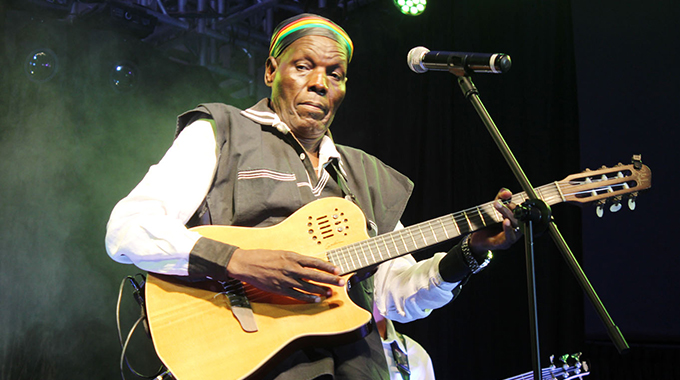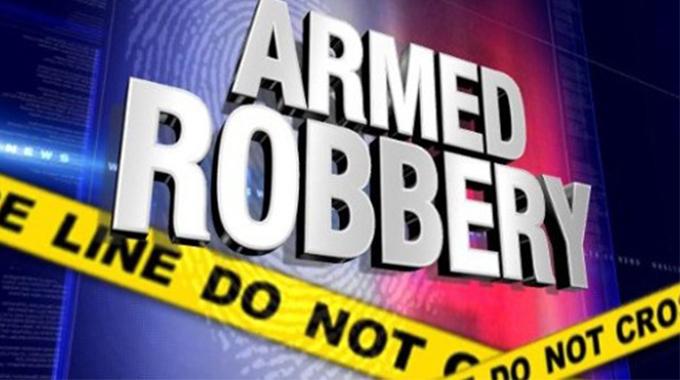This is how music has spiced my life
Many readers of this column know that music holds a special place in my heart. I grew up immersed in music to the extent that if my DNA was tested, a couple of strands would reflect this. My late father had a collection of well over 100 jazz albums. Until it was decimated by his naughty kids, who did not appreciate their value. Exclude me from that lot.
Having grown up around the precincts of District Six in Cape Town, South Africa, in the 1940s and 50s, it came as no surprise that he would catch the bug.
It was part of the movement. Jazz was part protest music played in illegal dens that later metamorphosed in the latter day shebeens.
Apartheid was at its prime and the puritanical white governments of the time thought it was their divine right to “clean up” society by banning the consumption of alcohol by blacks plus the music that seemed to fuel it.
That influence was bound to seep through an equally condemned black community in the then Rhodesia. The days of Wenela when hundreds were shipped to the rich mines of the Witwatersrand as cheap labour was fodder for cultural assimilation. The influence was from the United States, but it made its way to the slums of Johannesburg, along with the flamboyant fashion that came with it.
When my late father eventually retraced his steps to the country of his birth, he was already on the upper reaches of the middle class. The fact that he was manager of a Jewish furniture business, set him from the rest. But he remained humble and modest right down to his death.
He sold “radiograms” and later black and white television sets to the up-and-coming black middle class composed mainly of teachers and nurses. My mother, a nurse in midwifery, trained at Mpilo Maternity Hospital, was swept away by this dapper and cool Shangani from Cape Town and the trappings that went with him. When they thought of going into business after my two brothers and I were born in the 1960s (yes, I am that old) a music shop was one of them. My father would take care of his budding food and retail business, while mum would sell records in her spare time.
My enduring memory from that era was our sitting room in Mhlahlandlela, Tshabalala, littered with boxes of seven inch singles. For those of you born in the 21st century, music was encapsulated in vinyl discs that came in seven inch and 12 inch variants. These were played on turntables that had a “needle” that captured the sound and relayed it to an amplifier, then speakers.
They were very portable, and the hits of that day would be stamped on side A while another song would be on side B. The coming of the LP meaning Long Play albums meant that more songs could be featured on both sides. Complemented by colourfully creative covers that formed a brilliant marketing tool.
I am not sure which was the first album that I bought personally. But my late Uncle Jabulani had played his role diverting me from my father’s Jazz collection of Louis “Satchmo” Armstrong, Ella Fitzgerald, Brook Benton and Jimmy Smith, to the rock of Grand Funk Railroad, LynyrdSkynyrd and Van Halen.
Gladly, he was to migrate to the negro funk of Bootsy Collins and Parliament, Commodores, The Meters, Cameo, The Isley Brothers, Con-funk-shun and Earth, Wind and Fire. The list is endless but I became so immersed in the music that it was my lifeblood.
The sudden departure, not total though, from the funk of the 1970s and 80s came at school. Fletcher High School, where I did my Form One till Four, was a melting pot. It also reflected the revolutionary politics that emanated from the raging bush war between abafana/vakomana and a brutal racist regime.
We even escaped being called up into the Rhodesian Army as it was known then. Reggae was introduced to my malleable brain by one Brian Ndebele, son to the late former Speaker of Parliament, Cyril Ndebele. Brian had been literally posted to Fletcher straight from the United Kingdom where he had been born.
It was a cultural shock of sorts, for him and for us, because here he was in Africa, a far cry from the pristine England, while we battled with his near Cockney accent. But a man of his music he was. Back in the UK he was a part time disc jockey. Which explains why his father banished him to the back of beyond. Ndebele felt his eccentric offspring was setting the wrong priorities. For all his sins, which were blessings to us, Brian brought along two trunks.
One with his clothing, and the second full of music cassettes. There he set another revolution of sorts alight by introducing reggae music to all of us.
He wasn’t stingy at all and there wasn’t one of us who was not given a Brian Ndebele reggae mix-tape. It was a marketing gimmick that was to take hold in recent years with the mix-tapes of today. We are talking about 1979!
Reggae was infectious and it was icing on the cake that in 1980 at the first Zimbabwe Independence celebrations Bob Marley was invited to perform. By then we were already singing renditions of Zimbabwe, Survival, So Much Trouble and Exodus.
My conversion to reggae was near total and it carried through the eighties right up to varsity. We attended every single concert by visiting reggae artistes from Dennis Brown live at Barbourfields Stadium, to Misty In Roots, UB40, Aswad, King Sounds and the unforgettable Culture bash at the National Sports Stadium. Those were heady days I tell you.
Next week I will relate how I took a sudden turn to retrace my early steps in Jazz music, but with an African twist. Stay tuned.










Comments